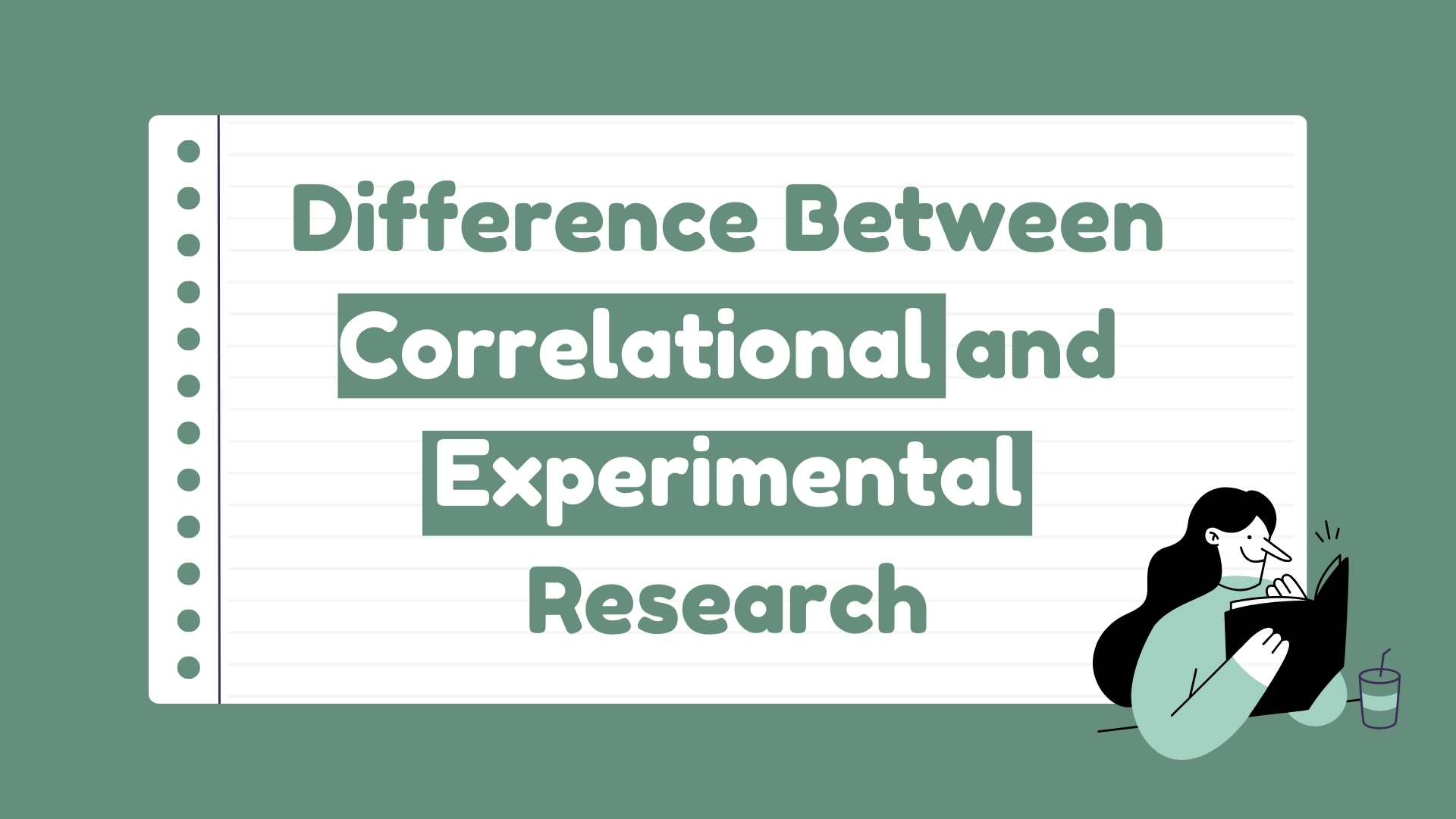Exploratory research is a vital first step in the scientific process, offering researchers a flexible and insightful approach to investigating new or poorly understood phenomena. This method of inquiry allows for the generation of initial insights, hypotheses, and research questions that can guide more focused studies in the future.
By employing various data collection techniques and maintaining an open, adaptable mindset, exploratory research helps bridge knowledge gaps and paves the way for innovative discoveries.
This article delves into the key aspects of exploratory research, including its methods, advantages, and practical implementation, providing a comprehensive guide for students, researchers, and professionals seeking to harness the power of this fundamental research approach.
Table of Contents
What is exploratory research?
Exploratory research is a preliminary research approach used when a problem or topic is not well-defined or understood. It aims to gain initial insights, develop tentative theories, and lay the groundwork for more conclusive research in the future. This type of research is characterized by its flexibility and lack of formal structure, allowing researchers to investigate new areas, identify key issues, and generate hypotheses for further study.
Exploratory research is typically conducted when:
- There is little or no prior knowledge about a topic
- The research problem is not clearly defined
- Researchers need to establish priorities for future research
- New perspectives on existing phenomena are sought
The primary goal of exploratory research is not to provide definitive answers, but rather to better understand the nature of a problem or opportunity and to guide the development of more targeted research questions and methodologies for subsequent studies.
Exploratory research examples
Exploratory research can be applied in various fields and contexts. Here are some examples to illustrate its diverse applications:
1. Market Research for a New Product:
A company developing a revolutionary smart home device might conduct exploratory research to understand potential consumer needs, preferences, and concerns. This could involve focus groups, surveys, and observational studies of how people interact with existing smart home technologies.
2. Social Media Behavior Study:
Researchers interested in emerging social media trends might use exploratory methods to investigate how different age groups use new platforms. This could include content analysis of posts, user interviews, and tracking usage patterns to identify key themes and behaviors.
3. Medical Research on a Rare Disease:
Medical researchers might employ exploratory techniques to gather initial data when confronted with a newly identified rare disease. This could involve case studies of affected individuals, analysis of medical records, and consultations with various specialists to form preliminary hypotheses about causes and potential treatments.
4. Environmental Impact of Urban Development:
Ecologists studying the effects of rapid urbanization on local ecosystems might use exploratory research to identify key areas of concern. This could include field observations, analysis of satellite imagery, and interviews with residents to understand changes in wildlife patterns and habitat loss.
5. Educational Technology Implementation:
A school district considering the adoption of new educational technology might conduct exploratory research to understand potential impacts and challenges. This could involve pilot studies in select classrooms, surveys of teachers and students, and analysis of similar implementations in other districts.
6. Cultural Anthropology Study:
Anthropologists encountering a previously unstudied indigenous community might use exploratory methods to gain initial insights into their social structures, beliefs, and practices. This could include participant observation, unstructured interviews, and analysis of artifacts.
7. Emerging Technology Trends:
A tech company exploring potential applications of quantum computing might conduct exploratory research to identify promising areas for development. This could involve literature reviews, expert interviews, and scenario planning workshops.
Data collection in exploratory research
Data collection in exploratory research is a crucial step that allows researchers to gather initial insights and information about their topic of interest.
The methods used are typically flexible and adaptable, allowing researchers to explore various aspects of the subject as new information emerges. The choice of data collection methods often depends on the nature of the research question, available resources, and the level of access to potential sources of information.
In exploratory research, data collection methods are generally divided into two main categories: primary research methods and secondary research methods.
Each of these categories offers unique advantages and can be used independently or in combination to provide a comprehensive understanding of the research topic.
1. Primary Research Methods
Primary research methods involve collecting new, original data directly from sources. These methods are particularly valuable in exploratory research because they allow researchers to gather specific information tailored to their research questions. Primary research methods often provide current, firsthand information that may not be available through other sources.
Some common primary research methods used in exploratory research include:
- Interviews: These can be structured, semi-structured, or unstructured conversations with individuals who have relevant knowledge or experience. Interviews are particularly useful for gaining in-depth insights and understanding personal perspectives.
- Focus Groups: These involve guided discussions with small groups of people to explore their opinions, attitudes, and experiences related to the research topic. Focus groups can reveal group dynamics and generate new ideas through participant interaction.
- Surveys and Questionnaires: While often associated with quantitative research, exploratory surveys can use open-ended questions to gather qualitative data and identify patterns or themes.
- Observations: This method involves watching and recording behaviors, interactions, or processes in natural settings. It can be particularly useful when studying social phenomena or workplace dynamics.
- Case Studies: In-depth investigations of specific instances, individuals, or groups can provide rich, contextual data for exploratory research.
- Pilot Studies: Small-scale preliminary studies can help researchers test and refine their research methods before embarking on larger projects.
2. Secondary Research Methods
Secondary research methods involve analyzing existing data that has been collected for purposes other than the current research project. These methods are often less time-consuming and less expensive than primary research methods, making them particularly useful in the early stages of exploratory research.
Common secondary research methods include:
- Literature Reviews: Comprehensive examinations of existing academic literature, research papers, and publications related to the research topic. This helps identify gaps in current knowledge and informs the direction of further research.
- Data Mining: Analyzing large datasets or databases to identify patterns, trends, or relationships that may not be immediately apparent.
- Content Analysis: Systematic examination of various forms of recorded communication, such as documents, videos, or social media posts, to identify themes or patterns.
- Historical Analysis: Studying historical records, archives, or artifacts to understand the development of phenomena over time.
- Secondary Analysis of Existing Data: Reexamining data collected for previous studies to address new research questions or to verify earlier findings.
- Government and Institutional Reports: Analyzing reports and statistics from government agencies, NGOs, or other institutions can provide valuable background information and context.
In exploratory research, it’s common to use a combination of primary and secondary research methods. This approach, known as triangulation, allows researchers to cross-verify findings from different sources and methods, enhancing the reliability and validity of their exploratory study.
The choice of data collection methods in exploratory research should be guided by the research objectives, available resources, and the nature of the information needed. Researchers should remain flexible and open to adjusting their methods as new insights emerge during the exploratory process.
Ready to transform your writing experience?
Sign up for Blainy today and start writing your papers with confidence!
Advantages of exploratory research
Exploratory research offers several significant advantages that make it a valuable approach in various fields of study. These advantages contribute to its widespread use in the initial stages of research projects and in situations where little is known about a topic. Here are some key advantages of exploratory research:
1. Flexibility and Adaptability:
One of the primary advantages of exploratory research is its inherent flexibility. Unlike more structured research designs, exploratory studies allow researchers to adapt their approach as new information emerges. This flexibility enables researchers to follow promising leads, adjust their focus, and explore unexpected findings that may arise during the research process.
2. Generation of New Ideas and Hypotheses:
Exploratory research is particularly effective in generating new ideas and hypotheses. By delving into relatively unknown areas, researchers can uncover novel concepts, relationships, or patterns that may not have been apparent initially. These insights can form the basis for more focused, hypothesis-driven research in the future.
3. Cost-Effectiveness:
In many cases, exploratory research can be more cost-effective than full-scale, conclusive research studies. It allows researchers to gather initial insights and identify potential areas of interest without committing substantial resources to a comprehensive study that may prove unnecessary or misdirected.
4. Improved Research Design:
The insights gained from exploratory research can significantly enhance the design of subsequent studies. By identifying key variables, potential challenges, and relevant methodologies, exploratory research helps researchers refine their approach for more definitive studies, potentially saving time and resources in the long run.
5. Contextual Understanding:
Exploratory research often provides a rich, contextual understanding of complex phenomena. This holistic view can be particularly valuable when studying social, cultural, or organizational issues where context plays a crucial role in understanding behaviors or outcomes.
6. Identification of Research Priorities:
In fields where multiple research directions are possible, exploratory studies can help identify the most promising or urgent areas for further investigation. This prioritization can be especially valuable when resources are limited or when rapid advancements are needed in a particular area.
7. Enhanced Problem Definition:
Often, the initial problem statement in research may be vague or too broad. Exploratory research helps in clarifying and refining the problem definition, ensuring that subsequent research efforts are more focused and relevant.
8. Methodological Innovation:
The open-ended nature of exploratory research can lead to the development of new research methodologies or the novel application of existing methods. This innovation can be particularly valuable in interdisciplinary studies or when addressing unique research challenges.
9. Stakeholder Engagement:
Exploratory research often involves engaging with various stakeholders, including subject matter experts, potential users, or affected communities. This engagement can lead to more relevant and impactful research outcomes and can help in building relationships for future studies.
10. Risk Mitigation:
By providing initial insights and identifying potential challenges, exploratory research can help mitigate risks associated with larger, more resource-intensive research projects. It allows researchers to identify and address potential pitfalls early in the research process.
11. Foundation for Interdisciplinary Research:
Exploratory studies can serve as a bridge between different disciplines, identifying areas where collaborative research might be beneficial. This can lead to more comprehensive and innovative approaches to complex problems.
12. Rapid Response to Emerging Issues:
In fast-evolving fields or during crisis situations, exploratory research allows for quick initial assessments. This rapid response capability can be crucial in informing timely decision-making or policy development.
Ready to transform your writing experience?
Sign up for Blainy today and start writing your papers with confidence!
How to conduct exploratory research
Conducting exploratory research requires a systematic yet flexible approach. Here’s a comprehensive guide on how to conduct exploratory research effectively:
1. Define the Research Problem:
Begin by clearly articulating the research problem or area of interest. While the problem may be broad at this stage, having a general direction is crucial. For example, you might start with a question like “What factors influence consumer adoption of electric vehicles?”
2. Review Existing Literature:
Conduct a thorough review of existing literature related to your research problem. This step helps you understand what’s already known about the topic and identifies gaps in current knowledge. Use academic databases, industry reports, and other relevant sources to gather information.
3. Choose Appropriate Research Methods:
Select research methods that align with your research objectives and available resources. Consider a mix of primary and secondary research methods. For instance:
- Interviews with electric vehicle owners and potential buyers
- Analysis of online forums and social media discussions about electric vehicles
- Review of sales data and market reports
4. Develop Research Questions:
Based on your literature review and initial insights, develop a set of open-ended research questions. These should be broad enough to allow for exploration but specific enough to guide your research. For example:
- How do consumers perceive the benefits and drawbacks of electric vehicles?
- What role does charging infrastructure play in the decision to purchase an electric vehicle?
5. Create a Flexible Research Design:
Design your research approach with flexibility in mind. Be prepared to adjust your methods or focus as new information emerges. Your research design might include:
- A plan for conducting semi-structured interviews
- A framework for analyzing online discussions
- A schedule for reviewing and synthesizing secondary data
6. Collect Data:
Begin your data collection process using the methods you’ve chosen. In exploratory research, it’s often beneficial to start with broader, more open-ended approaches and then narrow your focus as patterns emerge. For example:
- Conduct initial interviews with a diverse group of electric vehicle stakeholders
- Analyze a wide range of online discussions before focusing on specific themes
- Review broad market trends before diving into specific consumer segments
7. Analyze Data Iteratively:
Analyze your data as you collect it, rather than waiting until all data collection is complete. This iterative approach allows you to identify emerging themes and adjust your research focus accordingly. Use techniques like:
- Thematic analysis for qualitative data
- Basic descriptive statistics for quantitative data
- Mind mapping to visualize connections between different concepts
8. Identify Patterns and Themes:
Look for recurring patterns, themes, or relationships in your data. These might include:
- Common concerns about electric vehicle range and charging time
- Unexpected factors influencing purchase decisions, such as environmental values
- Differences in perceptions between current owners and potential buyers
9. Generate Hypotheses or Propositions:
Based on your analysis, develop tentative hypotheses or propositions that could be tested in future research. For instance:
- “The availability of home charging options significantly influences the decision to purchase an electric vehicle.”
- “Consumer perceptions of electric vehicle performance are strongly influenced by word-of-mouth recommendations.”
10. Refine Research Focus:
Use your findings to refine your research focus for potential future studies. This might involve:
- Narrowing down to specific aspects of electric vehicle adoption
- Identifying key variables for quantitative measurement in future research
- Recognizing new areas that require further exploration
11. Document and Reflect:
Thoroughly document your research process, including your methods, key findings, and any challenges encountered. Reflect on the strengths and limitations of your approach. This documentation is crucial for:
- Ensuring transparency in your research process
- Providing a foundation for future research
- Identifying areas for methodological improvement
12. Share and Seek Feedback:
Present your findings to colleagues, stakeholders, or in academic forums. Seeking feedback can:
- Provide new perspectives on your data
- Help validate your findings
- Generate ideas for future research directions
13. Plan Next Steps:
Based on your findings and feedback, plan the next steps in your research journey. This might involve:
- Designing a more focused, confirmatory study
- Exploring a new aspect of the topic that emerged during your research
- Collaborating with other researchers or disciplines to address complex issues
Conclusion
Exploratory research serves as a crucial foundation for advancing knowledge across various fields. Its flexible nature and ability to generate new insights make it an invaluable tool for researchers facing complex or novel issues. By embracing the methods and principles of exploratory research, investigators can uncover unexpected patterns, refine research questions, and lay the groundwork for more targeted studies. While it has limitations, the advantages of exploratory research in fostering innovation, guiding resource allocation, and adapting to emerging challenges are undeniable. As the research landscape continues to evolve, the role of exploratory research in driving scientific progress and informing decision-making remains more relevant than ever.







